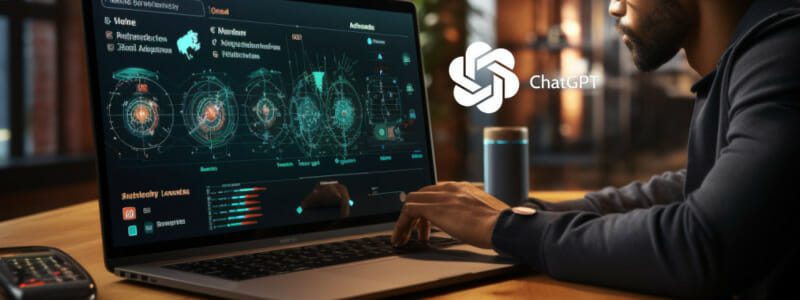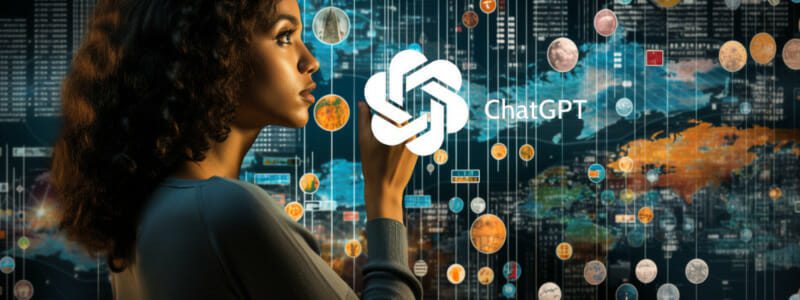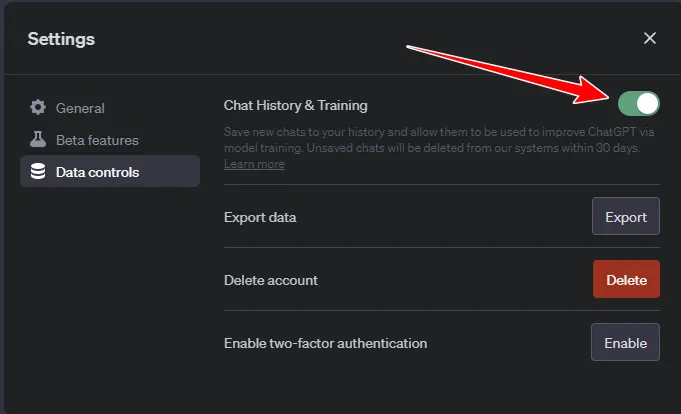Introduction
ChatGPT data privacy is a topic of great interest in the realm of artificial intelligence (AI). In this guide, we will explore 10 key points on this important subject. This AI tool is transforming how we interact and gather information online, thanks to its ability to provide human-like responses to user queries. However, the data collection and usage practices of ChatGPT have sparked ethical debates. In this comprehensive guide, we will delve into the key question: Does ChatGPT save your data? We’ll also explore how the data is used and what steps you can take to safeguard your privacy.
1. Understanding ChatGPT: ChatGPT Data Privacy and Its Approach to Data Collection
Generative AI models, such as ChatGPT, are capable of creating content in various formats, including text and images. These models depend on extensive data for their training, which naturally raises concerns about user privacy and content ownership. ChatGPT employs machine learning algorithms that continually enhance its responses based on user interactions. As a result, the application might retain your chat history and potentially utilize it for training enhancements. According to OpenAI’s FAQs, user conversations “may be reviewed by our AI trainers to improve our systems.
2. ChatGPT Data Privacy: Ensuring User Privacy in the AI Era
In the digital age, data privacy is a paramount concern. OpenAI’s ChatGPT, a powerful conversational AI, is no exception to this rule. Yes, ChatGPT does save data, such as chat history, to train and improve its models. However, OpenAI has taken significant steps to address privacy concerns and provide users with more control over their data.
As of April 2023, OpenAI introduced enhanced privacy controls, including the ability to turn off chat history in ChatGPT. This feature can be found in the user settings under the “Data Controls” section. By turning off chat history, your conversations won’t be used to train ChatGPT or appear in the history sidebar. This is a significant step towards ensuring user privacy.

However, it’s important to note that even with chat history turned off, data is still retained for 30 days and potentially monitored for abuse. This is a standard practice in the industry to ensure the safety and security of the platform and its users.
OpenAI is also working on launching ChatGPT Business, a subscription for professionals and enterprises that will provide more control over data by default. ChatGPT Business will use different data usage policies compared to individual users. One of the key features of ChatGPT Business is that end users’ data will not be used to train ChatGPT’s models. This ensures a higher level of data privacy for professional and enterprise users.
In conclusion, while ChatGPT does save data, OpenAI is actively working to provide users with more control over their data and to ensure that privacy concerns are addressed. As users, it’s important to stay informed about these controls and make use of them to protect our data.
For more information on ChatGPT and data privacy, you can visit the official OpenAI blog here.
3. Unleashing the Power of ChatGPT: A Multitude of Benefits and ChatGPT Data Privacy
Artificial Intelligence (AI) has been a game-changer in many fields, and OpenAI’s ChatGPT is a shining example of this revolution. This AI-powered tool is not just a chatbot; it’s a versatile digital companion that can assist you in numerous ways, making your life easier and more productive. Here are some of the key benefits of using ChatGPT:

A. Simplifying Complex Concepts: One of the standout features of ChatGPT is its ability to break down complex ideas into simpler, more digestible terms. Whether you’re struggling with a challenging concept or trying to explain a difficult topic to someone else, ChatGPT can be a valuable ally. It can help make things clearer and enhance your understanding.
B. Brainstorming Business Ideas: Entrepreneurs can leverage ChatGPT as a resource for generating fresh business ideas. It can provide innovative suggestions, offer different perspectives, and even assist in evaluating the potential of your concepts. This can be a significant advantage in the dynamic world of business, where fresh and unique ideas are highly valued.
C. Personalized Content Recommendations: ChatGPT can curate content based on your interests and preferences. Whether you’re in search of a captivating book to read, a new movie to watch, or the latest trends in your industry, ChatGPT can provide tailored recommendations, saving you time and effort in finding the right content.
D. Assisting with Diverse Tasks: ChatGPT’s versatility extends to a wide range of tasks. From creative pursuits like writing poetry and playing games to academic tasks like grading essays and learning new subjects, ChatGPT can be your personal tutor, gaming partner, or a creative assistant. This makes it an attractive tool for both personal and professional use.
The power of ChatGPT lies in its adaptability. It learns from your interactions and continually strives to provide a better user experience. However, while it’s a powerful tool, it’s essential to use it responsibly. Always be mindful of the information you share and ensure you’re familiar with the data usage policies.
For more insights on AI technology and data privacy, check out OpenAI’s data usage policy.
For an external perspective on the benefits of AI tools like ChatGPT, you can refer to this article on VentureBeat discussing how such tools can transform human productivity in the enterprise.
Remember, the key to reaping the benefits of AI tools like ChatGPT is staying informed and proactive. By doing so, you can maximize the benefits while minimizing potential privacy risks.
4. Addressing Concerns: ChatGPT Data Privacy and User Concerns

Despite the numerous advantages of ChatGPT, it’s not without its share of concerns, particularly in the realm of data collection and usage. Here are some key issues that have been raised:
GDPR Conflicts: In March 2023, Italy banned ChatGPT due to conflicts with the General Data Protection Regulation (GDPR). This European regulation safeguards individuals’ rights to their personal data. OpenAI was found to be lacking in four areas according to GDPR regulations. It’s crucial to note that OpenAI, like many other tech companies, is continuously working to align its practices with international data protection laws. For more insights on GDPR and AI, you can refer to this comprehensive guide.
Inaccurate Information: AI-generated content, including responses from ChatGPT, can sometimes be untruthful, inaccurate, or misleading. OpenAI acknowledges this in their FAQ, emphasizing that while the AI strives for accuracy, it’s not infallible. Users should always cross-verify information received from AI sources.
Lack of Age Controls: Currently, ChatGPT does not have age controls to prevent individuals under the age of 13 from using its system. This raises concerns about the exposure of young users to potential risks. It’s a reminder that while AI tools can be beneficial, they should be used responsibly, especially when it comes to children.
Insufficient Consent: GDPR asserts that there is “no legal basis” for collecting people’s personal information without their explicit consent or a “legitimate interest” in using the data. This is a complex issue that extends beyond ChatGPT and touches on broader debates about data privacy in the digital age.
Risk assessment
These concerns underscore the importance of ongoing dialogue about AI and data privacy. As users, we need to stay informed about these issues and advocate for our rights. For more information on data privacy and AI, check out this thought-provoking article on the ethical implications of AI data collection.
5. Taking Control of Your Data Usage in ChatGPT:
In the world of AI technology, data privacy is a critical concern. OpenAI’s ChatGPT provides users with the ability to control how their data is used, striking a balance between personalized AI interaction and privacy.
When using ChatGPT, users have the option to toggle the “Chat History & Training” setting on or off. This setting is a significant component of the user’s control over their data. When this setting is switched on, users have the ability to edit and delete their prompts. However, it’s important to note that even with these changes, the data will still be utilized to train ChatGPT, contributing to the continuous improvement of the AI model.
On the other hand, if users prefer not to have their conversations used for training, they can opt to switch off this setting. While this prevents the data from being used to enhance ChatGPT, it’s crucial to understand that the data may still be retained for a period of 30 days and could be monitored for potential abuse1.

In addition to these options, users have the ability to clear all conversations. This can be done by clicking on the three-dot icon located at the bottom left of the screen. This action will display options to clear conversations and access settings. From here, users can choose to clear all of their chats or even delete their account entirely. However, it’s worth noting that this action only wipes the local history, and the data may still be used to train ChatGPT.
OpenAI is also in the process of launching ChatGPT Business, a subscription service tailored for professionals and enterprises. This service will provide more control over data by default, using different data usage policies compared to individual users. This ensures that end users’ data will not be used to train ChatGPT’s models, providing an additional layer of data privacy.
In conclusion, while ChatGPT does save data, OpenAI is actively working to provide users with more control over their data and to ensure that privacy concerns are addressed. As users, it’s important to stay informed about these controls and make use of them to protect our data.
OpenAI Blog: New ways to manage your data in ChatGPT ↩
6. ChatGPT’s Data Collection Practices
ChatGPT, developed by OpenAI, collects a variety of information to enhance its functionality and improve user experience. Here’s a detailed look at the data collection practices of ChatGPT:
- Account Information: When you sign up for ChatGPT or purchase a premium plan, the platform collects the information you provide. This includes your name, email address, and payment details1.
- Chatbot Interactions: ChatGPT collects the information you type into the chatbot. This includes the questions you ask, the responses you provide, and any feedback you give2.
- Device or Browser Data: ChatGPT collects identifying data from your device or browser. This can include your IP address, browser type, operating system, and location3.
- User Interactions: The platform also collects data about how you interact with the site. This includes the prompts you use, the types of content you engage with, the features you use, and the actions you take.
It’s important to note that these data collection practices are in line with industry standards and are crucial for the continuous improvement of the AI model. However, OpenAI is committed to maintaining high standards of data privacy and has implemented measures to ensure that user data is handled responsibly and transparently.
For more insights into AI technology and data privacy, check out OpenAI’s data usage policy.
Remember, while ChatGPT is a powerful tool, it’s essential to use it responsibly. Always be mindful of the information you share and ensure you’re familiar with the data usage policies.
Footnotes
- OpenAI Blog: New ways to manage your data in ChatGPT ↩
- ChatGPT and Data Privacy – Tripwire ↩
- Does ChatGPT Have Privacy Issues? – MakeUseOf ↩
- The Ethics of ChatGPT’s Data Usage: Privacy, Consent, and Fairness – TS2 Space ↩

7. Understanding ChatGPT’s Tracking Practices
OpenAI, the creator of ChatGPT, has a transparent approach to data storage, viewing it as a crucial element in enhancing the product. The data collected, encompassing details like IP addresses and browser types, is vital for the tool’s functionality. For instance, ChatGPT may record a user’s IP address, the time and date of interaction, and the language used. This data assists in tracking model usage and pinpointing any potential issues that may surface.
While this might appear intrusive, it’s crucial to note that these practices are standard in the tech industry. The data gathered is typically non-personal and is employed to improve the user experience. For instance, by tracking the IP address, OpenAI can discern the geographical location from which the tool is being accessed, aiding in the provision of region-specific services or features. Similarly, by identifying the browser type and version, OpenAI can ensure that ChatGPT is compatible and operates seamlessly across various browsers.
However, the purpose extends beyond merely enhancing the product. OpenAI also utilizes this data to uphold the integrity of the service. By scrutinizing usage patterns, OpenAI can identify and prevent any misuse of the service, ensuring it remains safe and reliable for all users.
In terms of privacy, it’s essential to remember that OpenAI is committed to upholding high standards. The organization adheres to stringent data protection laws and regulations, ensuring that user data is managed responsibly and transparently.
In conclusion, while OpenAI does collect and store certain user data, it’s done with the intention of improving the product and providing a better, safer user experience. As a user, it’s always a wise move to familiarize yourself with the data practices of any tool or service you use. If you have any concerns or questions, OpenAI’s comprehensive privacy policy provides more detailed information.
Remember to use the privacy settings available in ChatGPT to control how your data is used. Stay informed and proactive to maximize the benefits offered by AI tools like ChatGPT, while minimizing potential privacy risks.
8. Confidentiality in ChatGPT
ChatGPT, a ground breaking AI tool developed by OpenAI, has revolutionized our interaction with technology. However, it’s crucial to understand that ChatGPT isn’t a confidential platform. In other words, your conversations with ChatGPT aren’t private and can be reviewed by OpenAI. This review process is a key part of OpenAI’s commitment to aligning content with their policies and safety requirements1.
As users, we must treat our interactions with ChatGPT as non-private. This means we should avoid sharing sensitive or personal information that we wouldn’t feel comfortable posting openly on social media platforms. This is a vital aspect of maintaining our privacy and security while using AI tools like ChatGPT.
OpenAI’s commitment to reviewing conversations isn’t just about maintaining the quality of the AI’s responses. It’s also about ensuring that the AI isn’t used to propagate harmful or inappropriate content. This is a critical part of OpenAI’s mission to ensure that artificial general intelligence (AGI) benefits all of humanity2.
However, it’s also important to note that while OpenAI can review conversations, it doesn’t mean they are actively monitoring all interactions. The review process is generally focused on improving the AI’s performance and ensuring compliance with OpenAI’s use-case policy.
Please note that the links provided are for reference and may not directly address the specific points mentioned but provide a broader understanding of OpenAI’s policies and commitments.
9. Saving and Exporting Conversations in ChatGPT
ChatGPT, developed by OpenAI, provides users with the ability to save and export their conversations. This feature is an integral part of the user experience, allowing you to keep a record of your interactions with the AI. Here’s how you can manage your ChatGPT conversations:
By default, all your conversations with ChatGPT are automatically stored in the history tab, which can be found on the left side of the ChatGPT interface. This feature allows you to revisit your past interactions with the AI, providing a seamless experience.
To view, edit, or delete these conversations, you need to log into your OpenAI account. Once logged in, you can click on any prompt in the history tab to view the full conversation. If you wish to edit or delete a particular conversation, you can do so by clicking on the desired prompt and making the necessary changes.
In addition to managing your conversations, ChatGPT also provides the option to export your data. This feature can be accessed through the “Data Controls” section in the settings. Once you’re in the “Data Controls” section, you can click on “Export Data” to initiate the process. Upon clicking, you will receive an email containing a file with all your conversations.
The exported data is provided in an HTML file format and includes both your account details and conversation history. This feature is particularly useful if you wish to keep a local copy of your interactions with ChatGPT or if you need to transfer your data to another platform.
Remember, while ChatGPT provides these features, it’s essential to use them responsibly. Always be mindful of the information you share and ensure you’re familiar with the data usage policies.

In conclusion, ChatGPT not only offers a revolutionary AI experience but also provides users with comprehensive data management options. By understanding and utilizing these features, you can ensure a personalized and secure interaction with ChatGPT.
Conclusion
ChatGPT is a powerful AI tool with a multitude of helpful applications, but users should be aware of its data collection and usage practices. While the company has introduced privacy controls and is working on additional features to address concerns, it is essential to approach ChatGPT with an understanding that conversations may not be private. Users should take advantage of the available privacy settings and be cautious about the information they share on the platform. By staying informed and proactive, users can make the most of ChatGPT’s benefits while minimizing potential privacy risks.








